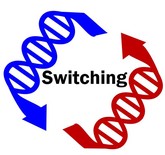Biosimilars
Clinical trial advances for Kashiv and Celltrion
US-based Kashiv Biosciences announced that ADL018, a biosimilar candidate to Xolair (omalizumab), has completed a successful global phase I clinical study in healthy volunteers. In addition, South Korea’s Celltrion announced that it received approval from the US Food and Drug Administration for the phase III investigational new drug (IND) application of its biosimilar CT-P53 for Ocrevus (ocrelizumab), a treatment for multiple sclerosis.
GADECCU position statement on biosimilars updated
GADECCU (Grupo Argentino de Enfermedad de Crohn y Colitis Ulcerosa), the Argentine Group for Crohn's Disease and Ulcerative Colitis, after providing key definitions on medical switch, non-medical switch and automatic substitution [1] and considering all the scientific information available, has updated its position in March 2023 regarding the use of biological medicines in clinical practice.
Study investigates success of US ‘skinny label’ approval pathway
Recent court rulings have put the US’ ‘skinny label’ approval pathway at risk. Now, a research letter published in JAMA Internal Medicine [1] has found approval and marketing of skinny label biosimilars have led to billions of dollars in savings to Medicare.
Celltrion: advances for Yuflyma and Vegzelma biosimilars
In the first half of 2023, South-Korea based Celltrion Biologics announced the approval of their Yuflyma (adalimumab-aaty) biosimilar in the US, the winning of a bid to supply Italy and Belgium with bevacizumab biosimilar Vegzelma.
Alkem launches first cetuximab similar biologic in India
In May 2023, Alkem Oncology announced the launch of Cetuxa, the fist similar biologic of cetuximab used in the treatment of head and neck cancer. The cetuximab originator was developed by Merck and is sold under the brand name Erbitux.
GADECCU presents a new positioning on biosimilars
The Argentine Group for Crohn's Disease and Ulcerative Colitis (Grupo Argentino de Enfermedad de Crohn y Colitis Ulcerosa, GADECCU) has released an updated position statement on biosimilars, particularly regarding the alternate use of innovative biological drugs and biosimilars during the same chronic treatment in patients with inflammatory bowel disease.
Low switch-back for patients treated with Avsola for IBD
A study has reported low switch-back rates for patients with inflammatory bowel disease (IBD) switched from the reference infliximab product to Amgen’s biosimilar Avsola (infliximab-axxq), ABP 710 [1].
EMA recommends approval of eculizumab biosimilar Epysqli
The European Medicines Agency’s (EMA) Committee for Medicinal Products for Human Use (CHMP) announced on 31 March 2023 that it had adopted a positive opinion for Epysqli.
Joint statement on biosimilars in immune-mediated diseases in Spain
A study conducted and published by Monte-Boquet E et al. aimed to improve knowledge and use of biosimilar medicines in immune-mediated diseases, and to produce a unified framework for the use of biosimilars [1].
High mannose glycans in biosimilars and their pharmacokinetic impact
A study conducted by Welch J et al. assessed the measurement, evaluation and potential for high mannose glycans to impact the pharmacokinetic (PK) profile of biosimilar monoclonal antibodies (mAbs), based on data submitted in 21 applications reviewed and approved by the US Food and Drug Administration (FDA). They also analysed reproducibility data of the glycan values for a subset of programmes within a reference product class. This reproducibility assessment enabled a broader cross-programme comparison of whether observed differences in high mannose between a proposed biosimilar and its reference product translate into PK differences.













